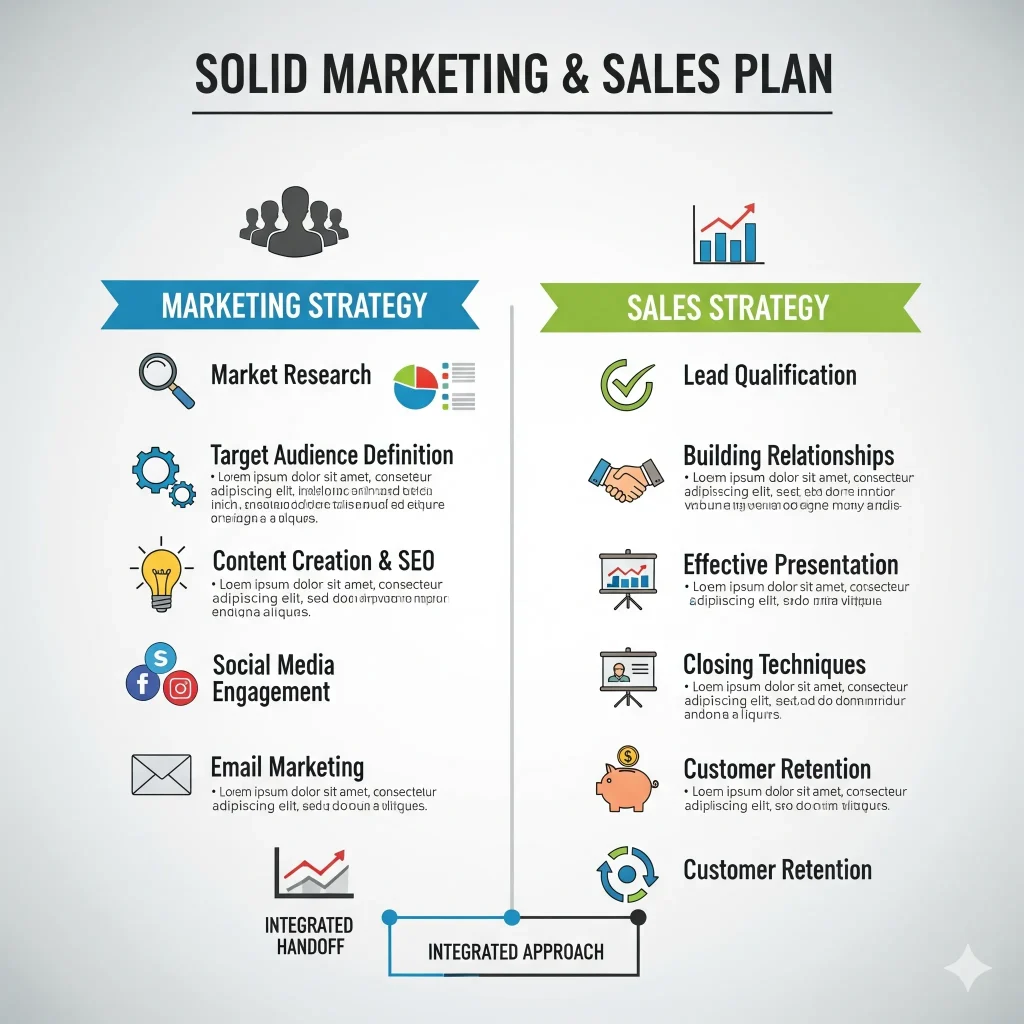A solid plan is one of the most important tools for any entrepreneur or startup. It acts as a roadmap, outlining objectives, strategies, and operational details that guide a business from its beginning to growth. Whether looking for investors, securing loans, or managing resources, a clear plan helps keep a venture on track to meet its goals.
This article gives an overview of the essential parts of a business plan. It explains why these plans matter, discusses market insights, and offers practical advice for entrepreneurs aiming to start or expand their businesses.
Understanding the Business Plan
A business plan is a formal document that outlines a business’s objectives, strategies, market positioning, and operational structure. It combines financial projections, marketing strategies, and product or service details into one framework. While often linked to startups, business plans are also valuable for established businesses planning expansion, diversification, or restructuring.
The plan has multiple purposes: it communicates the business vision to stakeholders, aids in decision-making, and provides a structured way to achieve measurable outcomes. For entrepreneurs, a solid business plan shows professionalism and builds credibility with investors, partners, and clients.
Importance of a Business Plan
Creating a plan offers several benefits. First, it clarifies the business’s purpose and long-term vision, helping founders set objectives and identify priorities. Second, it assesses market opportunities and challenges, guiding strategic decisions. Third, it provides a framework for financial planning, resource allocation, and performance tracking. Lastly, a business plan is crucial for securing external funding, as investors and banks need a clear picture of the business model and growth potential.
Detailed project report on business plan
Market Research and Analysis
A critical part of any business plan is market research. Knowing the target market, customer preferences, and competitive landscape allows entrepreneurs to develop effective strategies. Market research includes defining the size and growth potential of the industry, evaluating trends and demand, and studying competitors’ strengths and weaknesses.
Good market insights let businesses position their products or services strategically, spot gaps in the market, and tailor offerings to meet customer needs. This information also helps with pricing strategies, promotional efforts, and distribution channels.
To explore more, check our books
Defining Business Objectives and Goals
A business plan must clearly state the company’s objectives and goals. Objectives are broad statements about what the business wants to achieve, while goals are specific, measurable milestones indicating progress. Clear objectives and goals help guide operational decisions, motivate team members, and provide a standard for success.
Entrepreneurs should focus on both short-term and long-term goals, ensuring immediate actions support overall growth and sustainability. Goals should be realistic, achievable, and in line with market conditions.
Business Model and Strategy
The business model explains how the company creates, delivers, and captures value. It outlines revenue streams, target customers, products or services, and the value proposition. A strong business model shows how the company will make a profit and sustain growth over time.
The strategy section of the plan describes how to reach there objectives. This includes marketing and sales methods, operational plans, and expansion initiatives. A clear strategy ensures efficient resource use and that all team members align with the company’s vision.
Products or Services Overview
A detailed description of the products or services is a crucial part of the business plan. This section should highlight unique features, benefits, and competitive advantages. For startups, explaining how the product solves a problem or meets a need showcases its market potential.
Entrepreneurs should also consider future product development and innovation. Highlighting scalability and adaptability shows the business’s ability to grow and respond to changing market conditions.
Marketing and Sales Plan

A solid marketing and sales plan explains how the business will attract, engage, and keep customers. This includes identifying target audiences, creating brand messaging, selecting promotional channels, and defining sales tactics. The plan should also cover customer acquisition costs, retention strategies, and competitive positioning.
Digital marketing, social media, and e-commerce are increasingly important for startups to reach larger audiences. Matching marketing efforts with market research ensures resources are invested in the most effective channels.
Operational Plan
The operational plan describes the daily functions of the business. This includes production processes, supply chain management, staffing, and facilities. Clear operational planning ensures efficiency, minimizes risk, and allows the business to scale effectively.
For entrepreneurs, outlining processes, responsibilities, and timelines provides clarity and accountability. It also shows investors that the business has a practical and achievable execution plan.
Management and Organizational Structure
A business plan should detail the management team and organizational structure. Highlighting the expertise, experience, and responsibilities of key team members builds confidence among investors and stakeholders. The organizational structure clarifies reporting lines, decision-making processes, and team roles.
For startups, stressing leadership capabilities and strategic vision shows that the business has the skills to navigate challenges and meet its objectives.
Related articles:- Launching Your Goat Farming Venture: A Business Plan
Financial Planning Overview
While financial projections aren’t the main focus here, a typical document includes an overview of revenue expectations, cost structure, and growth projections. Even without detailed financials, entrepreneurs should explain the strategy for generating income, managing expenses, and sustaining operations.
A clear understanding of the financial landscape helps guide decision-making, pinpoint potential risks, and plan for future investment or expansion.
Risk Assessment and Contingency Planning
Identifying potential risks is critical for business sustainability. A thorough business plan points out internal and external risks, such as market fluctuations, operational challenges, or regulatory changes. It also outlines contingency plans to manage these risks and ensure business continuity.
Being proactive about risk management shows professionalism and preparedness, building trust with investors and partners.
Niir Project Consultancy Services: Supporting Entrepreneurs
For entrepreneurs seeking assistance in preparing business plans and evaluating opportunities, Niir Project Consultancy Services (NPCS) offers expert support. NPCS prepares Market Survey cum Detailed Techno Economic Feasibility Reports, which include insights into market demand, industry trends, operational planning, and production processes. With NPCS’s help, startups can assess feasibility, plan strategically, and make informed decisions, reducing risk and speeding up growth.
Conclusion
A well-prepared business plan is more than just a document; it is a strategic roadmap that guides startups toward sustainable growth. By combining market research, clear objectives, operational planning, and strategic insights, entrepreneurs can position their businesses for success.
The business plan serves as a bridge between vision and execution, helping startups navigate challenges, seize opportunities, and communicate effectively with investors and stakeholders. Using expert guidance, like that offered by NPCS, ensures that the business plan is actionable, realistic, and in tune with market realities.
With a strong business plan in place, entrepreneurs can confidently build, grow, and scale ventures that meet the evolving needs of the market.
Discover the best ideas for yourself by using our startup selector tools
Frequently Asked Questions
What is a business plan, and why is it important?
A business plan is a formal document that outlines a company’s goals and how it plans to achieve them. It’s crucial for attracting investors, guiding operational decisions, and providing a clear roadmap for the business.
What are the key components of a business plan?
A typical business plan includes an executive summary, company description, market analysis, organization and management section, marketing and sales strategy, and a financial projection.
How long should a business plan be?
There is no fixed length, but most business plans range from 15 to 40 pages, depending on the complexity of the business. The key is to be concise yet comprehensive.
Can a business plan be updated?
Yes, a business plan is a dynamic document. It should be reviewed and updated regularly to reflect changes in the market, business strategy, or financial situation.






